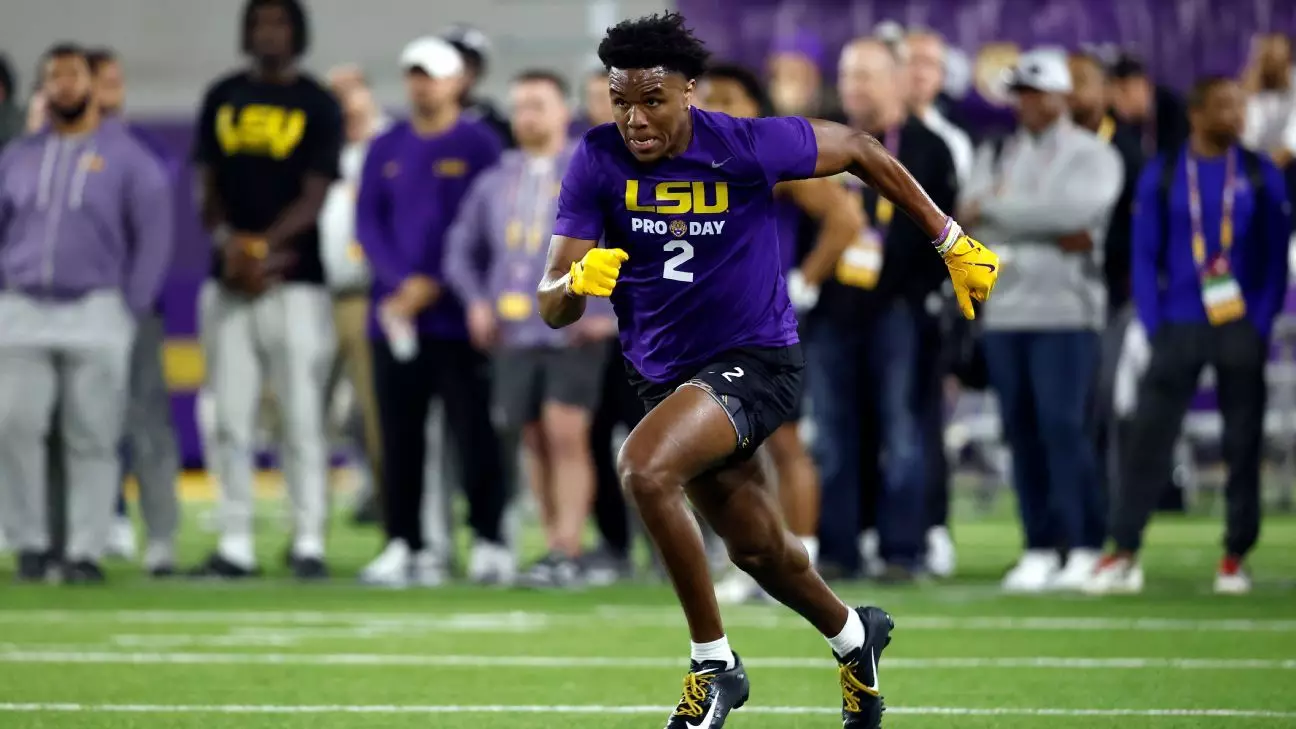The heartbreaking story of Kyren Lacy, the once-promising LSU football receiver, serves as a stark reminder of the mental health struggles that can silently affect even the most successful individuals. At just 24 years old, Lacy was found dead in his vehicle in Houston, an incident reported to be a possible suicide while he was being pursued by law enforcement. This tragic culmination of events reflects not only his personal battles but also the negligence surrounding mental health awareness in today’s society, particularly in competitive sports environments.
Mental health, particularly in high-stakes fields like athletics, is often stigmatized or overlooked, and Lacy’s case struggles to highlight the urgent need for open discussions on this topic. It’s imperative to analyze the events leading up to his death not just as separate incidents, but as interconnected parts of a larger narrative of struggle, trauma, and the search for identity amidst chaos.
The Weight of Accusations
Before his tragic end, Lacy was engulfed in a fog of legal troubles stemming from a car accident in Louisiana that resulted in the death of a 78-year-old man. This incident reportedly happened just a few days before he declared for the NFL draft, an opportunity that could have changed his life. Instead, Lacy was haunted by the stigma of being labeled a criminal as he prepared for a significant transition in his career. The criminal charges he faced—negligent homicide, felony hit-and-run—threw a shadow over his life, creating an emotional burden that is often unquantifiable.
As he grappled with these overwhelming circumstances, it is not surprising that his mental health deteriorated. Many young athletes face this pressure, but Lacy’s case exemplifies how quickly a once-promising career can spiral into despair. The high expectations placed upon athletes can create a dangerous dichotomy between public success and private turmoil.
A Family’s Heartbreak
Kyren Lacy’s father, Kenny Lacy, published a heartrending message on Facebook that captures the depth of the tragedy affecting their family. He urged all parents to be vigilant about their children’s mental well-being, emphasizing the need for early intervention and open communication. The absence of proactive mental health discussions can have dire consequences; Kenny’s plea serves as a chilling call to action for parents everywhere about the importance of fostering environments where young people feel safe discussing their struggles.
This personal loss transcends mere headlines and statistics. It resonates deeply within communities and families grappling with similar issues. The Lacy family’s grief reveals something larger than just a life cut short; it exposes a systemic problem that, if not addressed, will haunt countless families in the coming years.
Unraveling the Athlete’s Persona
Lacy’s journey through his athletic career reveals the intense pressure athletes endure long before they reach the professional level. Although he was celebrated for his talent—recording impressive stats during his tenure at LSU—the public often forgets that athletes carry the invisible weight of expectations. His early potential as a top receiver and the anticipation of a successful NFL draft served only to amplify the scrutiny he faced after his accident and subsequent legal troubles.
The transition from college stardom to the professional realm is fraught with dangers that go beyond the field. With millions of dollars and national attention on the line, it is often the emotional and psychological well-being of these young athletes that suffer. Lacy’s story invites an uncomfortable examination of the structures that place undue emphasis on winning at all costs while neglecting the personal development and mental health of the athletes involved.
A Broader Conversation Necessitated
The devastating end of Kyren Lacy’s story emphasizes the critical need for a transformative approach toward mental health in sports. It forces stakeholders—from coaches to family members—to recognize the signs of mental health struggles and to prioritize emotional wellness as much as physical training. Conversations about mental health must become as prominent in sports culture as discussions of game strategies and statistics.
While Lacy’s passing is a tragedy, it can serve as a catalyst for change, urging us to re-evaluate how we address mental health within the athletic community and society at large. We owe it to young athletes battling invisible demons to create an environment where they can thrive both on and off the field, breaking the solitary silence that often encloses their struggles.

